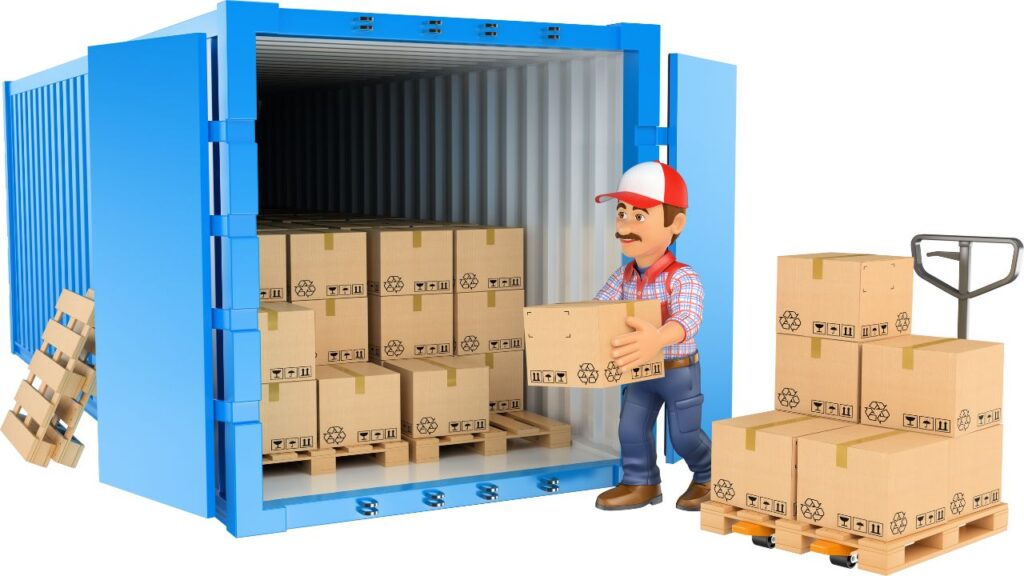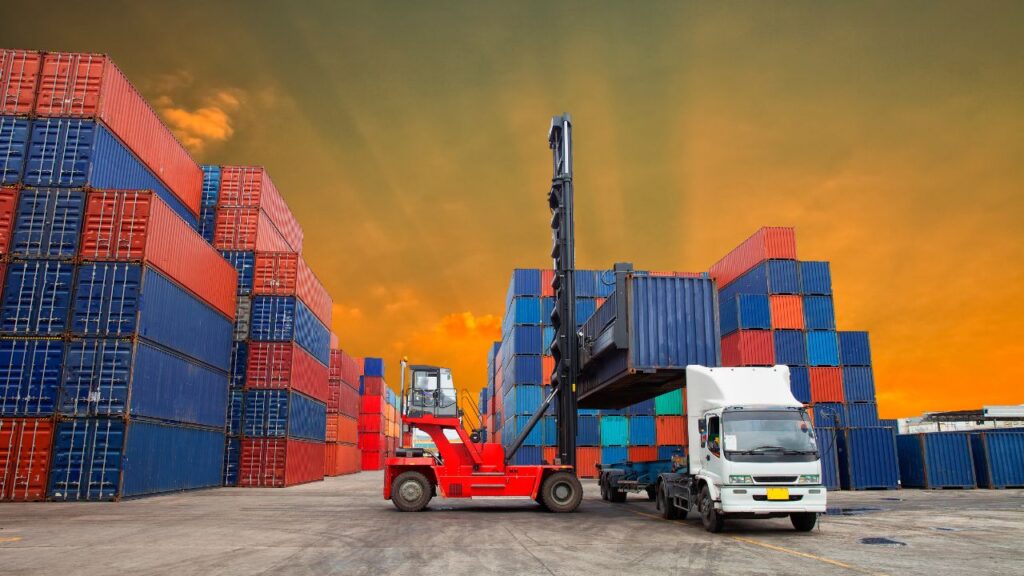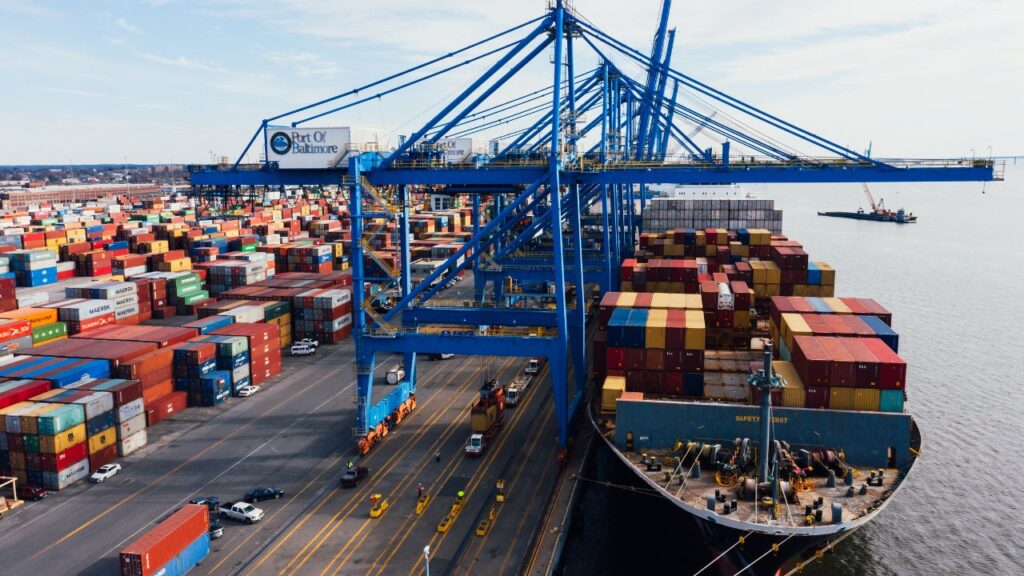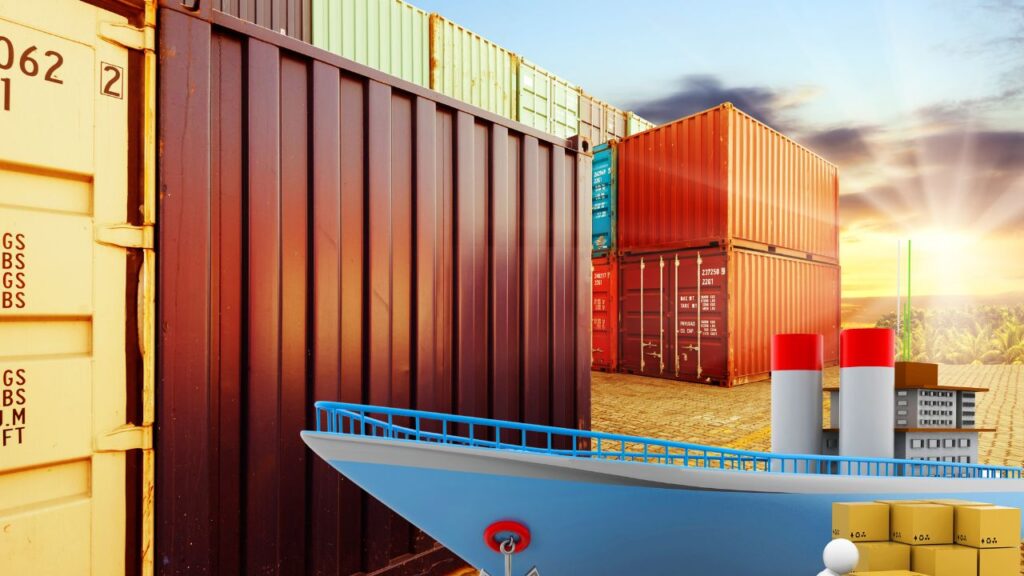Demurrage and detention charges are two terms in container shipping, trade, and logistics that confuse people in the entire shipping industry.
These two terms seem similar as they relate to unexpected fees associated with freight that compensate a facility and port terminal for storage when the cargo is delayed.
This article will dig deeper into the difference between detention and demurrage fees.
What Are Demurrage Fees and Detention Charges?

Demurrage fees are levied when the importer hasn’t picked up the full container or loaded container from the port or unpacked it within the allotted free days. After the free time, you will incur demurrage fees, which keep increasing for the added days.
On the other hand, detention fees refer to when the storing containers are taken from the port terminal for unpacking or for loading. It will depend upon the export or import. Either way, when the empty container isn’t returned to the port terminal within the allocated free time, then the detention fee or detention charge is applicable.
What Is Detention Free Time?

Detention-free time is the number of days shipping lines enable a consignee to utilize the container outside a terminal for free. After the allowed time ends, the shipping lines will begin charging detention charges daily.
How Are Demurrage Fees Calculated?
Keep in mind that demurrage fees are calculated per container per day and often increase after a specific amount of time.
For instance, if a shipper or receiver facility shipped a full container that exceeded laytime by seven days at a demurrage charge of $250 per day, then the shipped-owned containers would owe $1,750 per container.
If a shipment with 5 containers, The formula for computing a demurrage charge is 5 containers X $250 per day X 7 days.
What Is the Difference Between Demurrage and Detention Charges?

As mentioned earlier, demurrage charges
Demurrage & detention during importation
Suppose your empty container has been unloaded at the Port of Shenzhen. However, the road’s congestion to the port has delayed the truck of the freight forwarder reaching the port in time. Thus, the empty containers are stuck at the port beyond free days.
In that case, the shipping lines will give you demurrage fees until the container is picked up and gated from the terminal. A demurrage charge must be paid before the cargo is picked up from the port.
Meanwhile, suppose your container has reached the distribution warehouse, but due to labor shortage, you weren’t able to unload the cargo in the scheduled appointment. Thus, the container is stuck at the facility beyond free days.
The shipping lines will give you detention fees until the empty container is returned to the carrier. Such detention fees are an effort to lessen the container’s turnaround time and make the shipping efficient.
Detention & demurrage during export
Let’s say your demurrage was charged to the shipment. It’s also possible to happen during export. Suppose your shipping is waiting to get loaded on board a vessel in the port of Shenzhen. However, due to documentation problems, the empty containers aren’t able to load in time for the vessel’s scheduled departure.
Thus, the empty containers must stay in the port until the next departure. Also, the shipping lines will ask you to pay demurrage costs for the storage space and the period until then.
Now, suppose you’ve picked up an empty container from the freight forwarders to load your goods. Nonetheless, the weather is bad, and you can’t send the empty containers to the terminal in time.
Normally, freight forwarders will allow five allotted free time days to pick up the container, load it and return to the port. The shipping lines charge detention charges for the added days before the container returns to the terminal.
Detention And Demurrage Charges by Popular Shipping Lines

Here is a list of the demurrage and detention charges by the popular shipping lines today. Take note that the numbers are the average demurrage and detention fees after fourteen days for a standard container in US dollars. Cost just for reference based on the information of 2021. They change now and then. So if need to know exactly the charges can check directly with a freight forwarder company.
1. New York – $3,182
2. Long Beach – $2,730
3. Los Angeles – $2,673
4. Oakland – $2,325
5. Savannah – $2,210
6. Taiwan – $1,349
7. Hong Kong – $1,062
8. Jakarta – $973
9. Bremerhaven – $841
10. Hamburg – $833
Who Is Responsible for Demurrage and Detention Charges?

Consignees and shippers are responsible for demurrage and detention charges for the delayed use of containers outside of the terminal.
How To Avoid Demurrage & Detention Charges

Would you wish to learn how you can lessen your demurrage and detention fees? This section got you covered and will offer you some tips on how to avoid demurrage and detention charge.
Check the real-time status of your container.
One way to avoid detention fees and demurrage charges is to have real-time info on the status of your container. Always track them, so you are aware of where it is.
Optimize your free time to deal with demurrage and detention costs
This will not work for everybody, but it does not hurt to try. Right? If you know beforehand that it’s going to take a little while to pick up the freight than the allotted free time, it’s possible to negotiate for added free days before signing the agreement.
Often, the amount you are shipping will have an effect on how much leverage you have in negotiations. Nonetheless, if there’s a chance, you request extended free time to either lessen or remove extra demurrage and detention fees.
Plan your offloading schedule efficiently
Timely loading and offloading impact everybody. Hence, being prudent when scheduling your trucking can help save yourself and the driver a huge amount of money, time, and headaches.
Prepare for local customs
Make sure you are aware of the entire customs clearance process and the post regulations at the location your freights are headed. Dispatch the cargo in advance as you can, offering you flexibility for sudden challenges.
Leave no room for miscommunication
Always have clear communication with the parties involved. For a few ports, a container is accessible as soon as it hits the ground. Some think it should be accessible to be available. I know it isn’t very clear, but it comes down to the contract you sign.
Advanced planning and negotiation
Always be on time and be ready, particularly with all the documentation needed to move your cargo from one location to another. Per diem charge exists when there are discrepancies in the voyage details, address details, and freight specifics.
Demurrage and Detention Charges FAQs
Do you have more inquiries regarding demurrage and detention charges? We hope this section will answer some of them.
What does demurrage mean in shipping?
Demurrage refers to the charge the merchant pays for container use within the terminal beyond the free time period.
Who pays the demurrage fee?
So, who pays demurrage? Normally, sea freight forwarders receive a free time of three to five days after the container gets discharged. Oftentimes, freight companies must pay demurrage fees to collect the cargo from the part.
What are the reasons for demurrage?
Demurrage and detention charges can take place for a variety of reasons—when the containers aren’t being picked up due to specific instances like:
· lack of truckers
· customs exams
· limited chassis supplies
· port congestion
· etc.
How do you avoid demurrage charges?
Unexpected demurrage and detention charges can be the worst nightmare of a shipper. Aside from shipping costs, warehouse, and everything in between, the last thing a shipper wish is to pay extra fees because their cargo was not picked up in time.
Fortunately, demurrage and detention charges can be prevented by following a few basic tips. Possible ways to prevent demurrage and detention fee include:
· working with a dependable drayage carrier
· knowing your charter agreement
· optimize your free time to manage demurrage and detention costs
· plan your offloading schedule efficiently
· prepare for local customs
· leave no room for miscommunication
· advanced planning and negotiation
The key takeaway is that demurrage and detention charges can easily add up if the supply chain process is moving too slowly. As a shipper, those demurrage and detention charges are on your shoulders.
The demurrage rates will be charged while the container is in a facility or port, and detention charges will be applied in scenarios where the containers haven’t yet been returned within the allotted time.
While things may come that are outside of your control, negotiating a contract with extra free time can save you a substantial amount of money.
Also, pre-clearing your cargo with a licensed customs broker is an efficient solution.
What is the purpose of demurrage?
In principle, demurrage or detention charges have two purposes: compensating the shipping line for the use of its container shipping and working as a reward for the merchant to return empty containers and have a quick turnaround.
What does detention mean in logistics?
When it comes to logistics, the user will pay detention fees if they utilize the container for longer than the allotted free time. The user will be charged a detention fee until the container is returned to the port or terminal.
Thus, a detention fee is connected to the period outside of the port or terminal. When you don’t return the container within the agreed period, it delays the carrier from enabling another business to use it.
Detention fees are applied to offset that loss and deter shippers from using storage containers for a longer time. Container yards, ports, and terminals will charge that fee per container per day if their equipment isn’t returned based on the set contract.
What is detention in shipping?
Detention is the name of the charge that is applied by the shipping line or carrier for using an empty container more than permitted.
Detention could be considered as a rent cost for an empty container. Keep in mind that detention charges can be applied for import and export
Conclusion.
Demurrage and Detention Charges can be a staggering amount if not operated properly. While if you work with a reliable China freight forwarder. These charges can all be ignored.
The reason why freight forwarding is said reliable is that it can save you a lot of unnecessary trouble and expense.
Need to arrange a container shipment from China to your local? Have more questions about Demurrage and Detention charges? Contact our customer service specialists immediately. We will provide high-quality and efficient transportation solutions within 2mins once getting your requirement.





